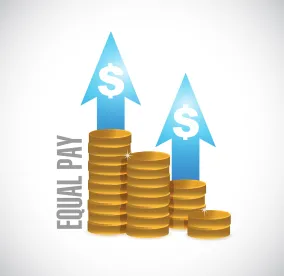California joins Delaware, Massachusetts, Oregon and several municipalities, including New York City and San Francisco, by banning inquiries into salary history. Aimed at combating wage disparity based on gender, the new law (AB 168), to be codified at Labor Code section 432.3, prohibits employers from seeking or relying upon salary history information.
Ban on Seeking Salary History Information
AB 168, which goes into effect on January 1, 2018, prohibits employers from seeking salary history information about applicants for employment. Specifically, employers may not, orally or in writing, seek salary history information, which includes compensation and benefits. The new law also prohibits employers from seeking such information through agents such as headhunters or recruiters.
Ban on Relying Upon Salary History Information
AB 168 also prohibits employers from relying upon salary history information to determine whether to offer an applicant employment or to set salaries. However, if an applicant voluntarily and without prompting, discloses salary history information, an employer may consider it in determining the applicant’s salary.
Last year, California amended the Equal Pay Act to state that “[p]rior salary shall not, by itself, justify any disparity in compensation.” AB 168 takes a step further by prohibiting employers from relying on salary history as a “factor” in determining what salary to offer.
Mandate to Provide Pay Scale Information
In addition, AB 168 requires employers, upon reasonable request, to provide the pay scale for a position to an applicant applying for employment. Thus, if an applicant for employment seeks the salary range for a position, an employer must disclose it.
Related Developments
On October 16, 2017, Governor Jerry Brown vetoed AB 1209, which would have required employers with 500 or more employees in California to collect information on gender wage differentials for exempt employees and board members and disclose the information to the California Secretary of State. In turn, the bill would have required the Secretary of State to publish the information on a public website. Governor Brown noted in his veto memorandum that although transparency is often the first step to addressing a problem, the bill as written “could be exploited to encourage more litigation than pay equality.” Governor Brown’s veto is a welcome development for employers.
Takeaways for Employers
AB 168 applies to employers of any size. California employers should review their employment applications and recruiting and hiring processes to ensure that they do not impermissibly seek or rely upon salary history information. In addition, employers should train all those involved in the recruiting and hiring process about the new law’s requirements.






 />i
/>i
